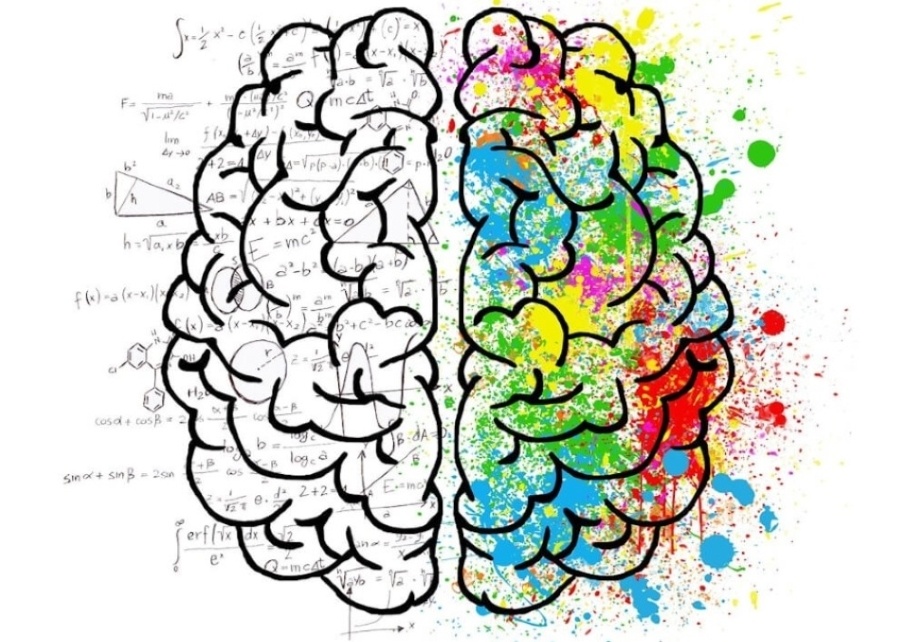The Human Brain Did Not Shrink 3,000 Years Ago
Author: University of Nevada, Las Vegas
Published: 2022/08/06 - Updated: 2023/01/04
Category Topic: Anthropology - Related Publications
Page Content: Synopsis - Introduction - Main
Synopsis: Did the transition to complex societies in the Holocene drive a reduction in brain size? A reassessment of the DeSilva et al. (2021) hypothesis. In a new paper, the UNLV-led anthropology team balks at a widely held belief that modern humans experienced an evolutionary decrease in brain size.
- Definition: Human Brain
The human brain is the central organ of the human nervous system, and with the spinal cord makes up the central nervous system. The brain consists of the cerebrum, the brainstem, and the cerebellum. It controls most of the body's activities, processing, integrating, and coordinating the information it receives from the sense organs and making decisions about the instructions sent to the rest of the body. The human brain can be divided into three basic units: the forebrain, the midbrain, and the hindbrain. Weighing about 3 pounds in the average adult, the brain is about 60% fat. The remaining 40% is a combination of water, protein, carbohydrates, and salts. The brain itself is not a muscle. It contains blood vessels and nerves, including neurons and glial cells. For decades, brain scientists have noticed that male brains tend to have slightly higher total brain volume than female ones, even when corrected for males' larger average body size. Scientists have learned more about the brain in the last ten years than in all previous centuries because of the accelerating pace of research in neurological and behavioral science and the development of new research techniques.
Introduction
Did the 12th century B.C.E., when humans were forging great empires and developing new forms of written text, coincide with an evolutionary reduction in human brain size? Think again, says a UNLV-led team of researchers who refute a hypothesis that's growing increasingly popular among the science community.
Main Content
Last year, a group of scientists made headlines when they concluded that the human brain shrank during the transition to modern urban societies about 3,000 years ago because, they said, our ancestors' ability to store information externally in social groups decreased our need to maintain large brains. Their hypothesis, which explored decades-old ideas on the evolutionary reduction of modern human brain size, was based on a comparison to evolutionary patterns seen in ant colonies.
Not so fast, said UNLV anthropologist Brian Villmoare and Liverpool John Moores University scientist Mark Grabowski.

In a new paper published last week in Frontiers in Ecology and Evolution, the UNLV-led team analyzed the dataset that the research group from last year's study used and dismissed their findings.
"We were struck by the implications of a substantial reduction in modern human brain size roughly 3,000 years ago, during an era of many important innovations and historical events - the appearance of Egypt's the New Kingdom, the development of Chinese script, the Trojan War, and the emergence of the Olmec civilization, among many others," Villmoare said.
"We re-examined the dataset from DeSilva et al. and found that human brain size has not changed in 30,000 years, and probably not in 300,000 years," Villmoare said. "In fact, based on this dataset, we can identify no reduction in brain size in modern humans over any time period since the origins of our species."
Key Takeaways The UNLV research team questioned several of the hypotheses that DeSilva et al. gleaned from a dataset of nearly 1,000 early human fossil and museum specimens, including:
- The UNLV team says the rise of agriculture and complex societies occurred at different times around the globe - meaning there should be variation in the timing of skull changes seen in different populations. However, DeSilva's dataset sampled only 23 crania from the timeframe critical to the brain shrinkage hypothesis and lumped together specimens from locations including England, China, Mali, and Algeria.
- The dataset is heavily skewed because more than half of the 987 skulls examined represent only the last 100 years of a 9.8-million-year period - and therefore don't give scientists a good idea of how much cranial size has changed over time.
- Multiple hypotheses on causes of reduction in modern human brain size need to be reassessed if human brains haven't actually changed in size since the arrival of our species.
What Occurs in The Brain At Time of Death - Research reveals brain oscillations associated with memory retrieval alter in the moments before death, suggesting our brain may replay significant life events just before we die.